Humans
Sign up for our newsletter
We summarize the week's scientific breakthroughs every Thursday.
-
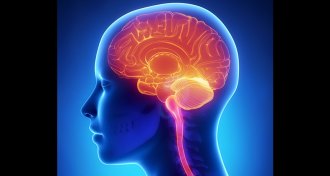 Neuroscience
NeuroscienceAdolescent brains open to change
Adolescent brains are still changing, a malleability that renders them particularly sensitive to the outside world.
-
 Humans
HumansU.S. is growing more genetically diverse
Young Americans are more genetically diverse than previous generations, a new DNA analysis reveals.
-
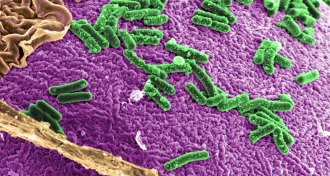 Genetics
GeneticsMicrobes may reveal colon cancer mutations
Certain microbial mixes are associated with particular DNA mutations in colon cancer, a new study suggests.
-
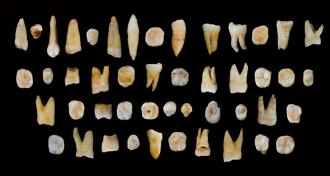 Anthropology
AnthropologyLong before going to Europe, humans ventured east to Asia
Cave finds indicate modern humans reached southern China long before entering Europe.
By Bruce Bower -
 Health & Medicine
Health & MedicineCancer drug’s effectiveness overinflated in animal studies
Claims about the cancer drug sunitinib are overblown because of poorly designed studies and negative results that were never published, a new analysis suggests.
-
 Health & Medicine
Health & MedicineCancer drug’s effectiveness overinflated in animal studies
Claims about the cancer drug sunitinib are overblown because of poorly designed studies and negative results that were never published, a new analysis suggests.
-
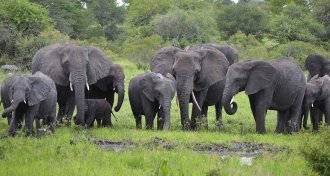 Health & Medicine
Health & MedicineElephants’ cancer-protection secret may be in the genes
An extra dose of cancer-fighting genes may be the secret to elephants’ long life spans.
By Meghan Rosen -
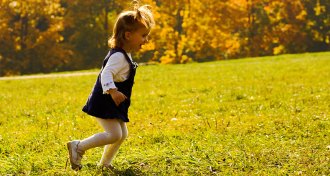 Health & Medicine
Health & MedicineWhy kids look funny when they run
Kids’ short legs give them little time to push high off the ground, a constraint that leads to the jerky toddler trot.
-
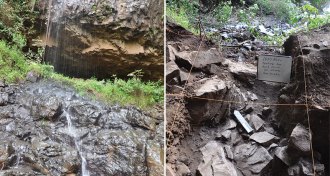 Humans
HumansInto Africa: Ancient skeleton sheds light on reverse migration
Ancient man’s DNA helps reveal extent of Eurasian farmers’ back-to-Africa migration some 3,000 years ago.
By Bruce Bower -
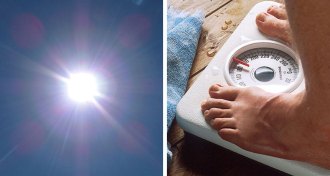 Health & Medicine
Health & MedicineWeight and sun exposure linked to onset of multiple sclerosis
Among people with multiple sclerosis, those with higher body mass and lower adolescent sun exposure tended to be diagnosed with the disease at an earlier age, a new study suggests.
-
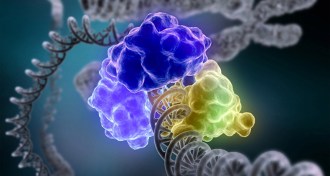 Genetics
GeneticsChemistry Nobel honors studies of DNA repair mechanisms
Studies of DNA’s repair mechanisms have won Tomas Lindahl, Paul Modrich and Aziz Sancar the 2015 Nobel Prize in chemistry.
By Sarah Schwartz and Meghan Rosen -
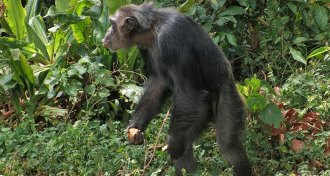 Humans
HumansChimpanzees show surprising flexibility on two feet
Chimpanzees’ upper-body flexibility while walking upright suggests ancient hominids walked effectively.
By Bruce Bower